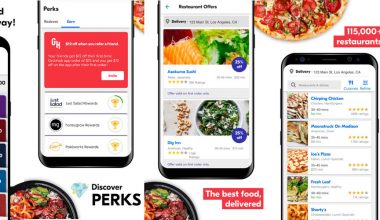Google’s first own-brand phone goes on sale tomorrow. But Matt Warman says the Nexus One is just the beginning.
Google’s first foray into mobile phones was an upsetting affair. The company whose search engine changed the world had been rumoured to be planning something equally revolutionary in a sphere dominated by the iPhone. Rumours had swirled of a phone that was free – one that would be, like most other Google products, supported by advertising.
What we got was a slightly clunky new operating system, a regular contract and a brick-like phone, the G1, that sported a slide-out keyboard that was more Red Dwarf than Star Trek. Commentators at the time, including myself in this newspaper, said that it was, if anything, the very gentle lappings of the water at the beginning of a new wave.
Tomorrow, however, Vodafone launches the Nexus One in Britain. It’s the first handset that Google has designed, and it’s the first that genuinely begins to realise the potential of the company’s operating system, Android. The device offers total integration with email, the web and third-party applications in a way that even the iPhone has yet to offer, especially at this price.
Indeed, while the iPhone dominates media coverage, it’s only 2 per cent of the market. Just 20 per cent of it has anything that could be called a smartphone, the devices that are basically mini-computers that make phone calls. BlackBerries and iPhones are cutting edge, not mass market.
Google’s Android, however, is likely to change that. There are around 20 handsets running the system on the market and because the system can be used and adapted freely by any manufacturer, it’s available from Samsung, Sony Ericsson and soon even budget manufacturers such as Alcatel.
At some point in the next few years, it won’t be a surprise if the majority of all handsets are running a version of Google’s operating system, just as the vast majority of British web searches use Google’s search engine. It’s simply the market at work – free and effective, Android offers a compelling option for both manufacturers and consumers. It will probably also kill of the satnav market because every phone offers a free Google Maps navigation and turn-by-turn directions.
There is, however, a problem for the Nexus One – although Google and the first operator to have it, Vodafone, will give the device an almighty marketing push, Google’s handset is not the best device available with Android. HTC, which has been at the forefront of Android hardware, has already produced the Desire. Essentially, it’s a souped-up Nexus One, offering a nicer screen, a better trackball and a faster processor. That means everything works faster. The Desire is free on a two-year contract at about £30 per month. The Nexus One is only on Vodafone at a similar price.
So Google’s tanks are on Apple’s lawn. The search giant doesn’t yet offer the eco-system of products and services that makes Apple’s iPhone so ubiquitous because there are too many Android handsets of different shapes and sizes. But make no mistake – Google will change the bulk of the market, will put the web and music in the majority of people’s pockets, and will probably not charge you a penny for it. There are few products that really make life both easier and cheaper – but Android is one of them.
Resource:
http://www.telegraph.co.uk/technology/google/7647230/Will-Android-eat-Apple.html


